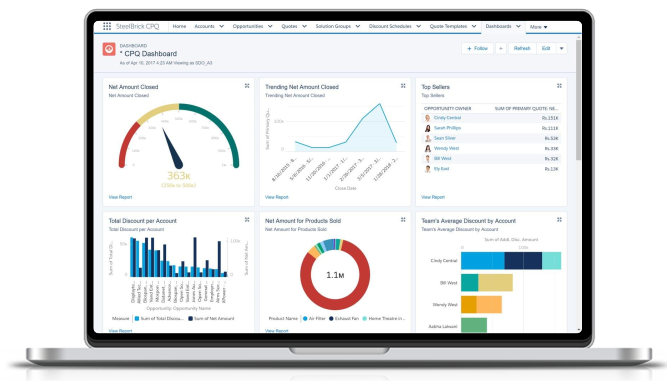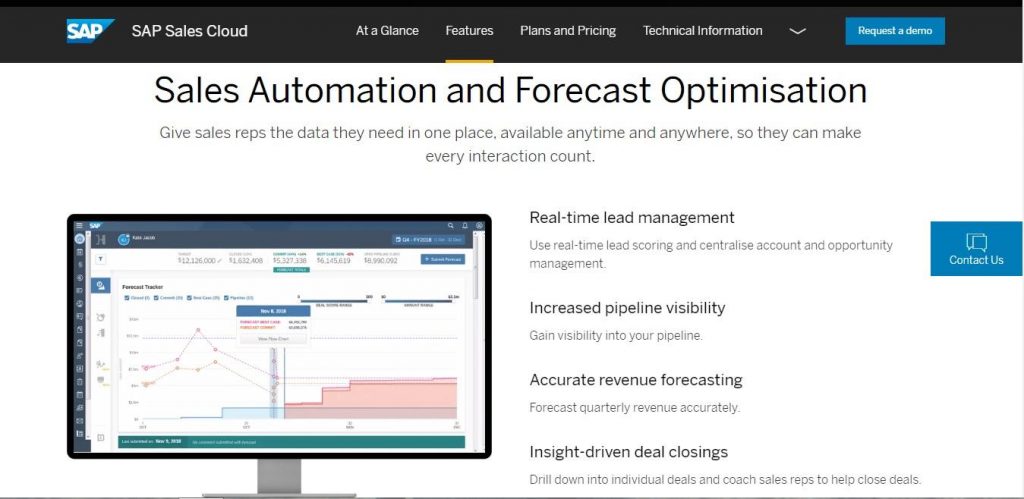Customer Relationship Management (CRM), the ideal amalgamation of approaches, strategies, and tools, which has earned a sweet spot right up there on every company’s priority list. And why’s that, you ask? Well, what is a company’s most valuable asset?
Yes, it’s the customer(s). (Don’t roll your eyes yet). We are aware of this phrase being overused, but it’s for a reason.

A company thrives on customers. It’s fate and future lies in their hands. For it to be the paradigm of the ‘ideal company,’ all the factors related to the customers are pivotal. And that is why choosing the best CRM software is of paramount importance. Firstly, CRM software is used to handle a company’s relations and communications with both current and potential customers.
By managing customer relationships, tracking leads and organizing processes using data analytics, it focuses on improving sales growth. Primarily, it focuses on customer retention.
And that brings us to our topic. Which CRM software out of Salesforce CRM and Sap CRM would be a step in the right direction? Well, we know it feels like Sophie’s choice as both of these offers astounding functionalities and features. But stick with us, and we promise to break it down and make it easier for you.
Salesforce has been in the game for almost two decades. This gives them a competitive edge over others. It’s been towering over the rest, having built an empire of CRM solutions on the cloud over the span. Brimming with features and functionalities, it’s a boon as well as a bane as Salesforce sometimes finds itself in a tough spot as some SMBs find it extravagant, excessive, and an unwanted expense. But over the past few years, they have acquired companies to cover up the part where they are lagging.
On the contrary, SAP has been in this field for almost 6-7 years. In such a short span, they have grown tremendously and rapidly. With almost all it’s on-premise functionalities available in the cloud, and diverse experience it has the edge over Salesforce with its singular focus. But when it comes to CRM-centric categories, it falls behind. Although, its various suites blend effortlessly, making it an easy choice for large organizations intending to use all its software.

Sales features – With both of them dispensing almost similar features, we can dig deeper to find some difference.
We have all been at the receiving end of it. Be its coupon codes, offers, or discounts, we have received emails by various companies and have also been attracted by these offers. An email has proven to be one of the best ways of marketing, however sketchy pr unreliable it seems. Also, monitoring these emails is highly crucial. Email utilities help in keeping track of opened emails, links accessed, amongst other data.

Business intelligence (BI) tools are gaining popularity as an additional module in almost every other type of business software. BI and business analytics enable users to collect detailed data and monitor KPIs of their daily business operations. This data helps them make data-driven decisions for the long term benefit of the enterprise. One prominent attribute of BI is custom reports. Many enterprises’ needs are not fulfilled via pre-built report templates, so creating specialized reports can be vital for a variety of business intelligence operations.


Knowledge Creation refers to a database containing information in various forms like articles, tutorials, videos, forums, etc. which can be accessed by internal as well as external users and can be used not only to provide information to users but also can be used as training information for staff.
SAP CRM can be accessed on Windows, Mac, and web. Whereas, Salesforce CRM can be accessed on Windows, Linux, Android, iPhone or iPad, Mac, etc.
Apart from this, SAP CRM supports English and Dutch only. Salesforce CRM offers English, Dutch, Turkish, French, Italian, Portuguese, Swedish, and Spanish. Therefore, Salesforce CRM increases its outreach as compared to SAP.
So, after weighing up all the features and considering the neck to neck standings of the two, the ultimate decision should be based on your requirements and needs. Large companies generally prefer SAP CRM if they are already using some of their other features. And if you want to go for software with a singular focus, Salesforce CRM would be a better choice. Consider the points given above and take into account those which reflect your necessities.
So, which one proved to be the best for you? Share your thoughts and feedback with us and get in touch!
Stop, read and acquire deep insights into complex issues
© 2025 Copyright - JanBask.com | Designed by - JanBask Digital Design
Write a Comment